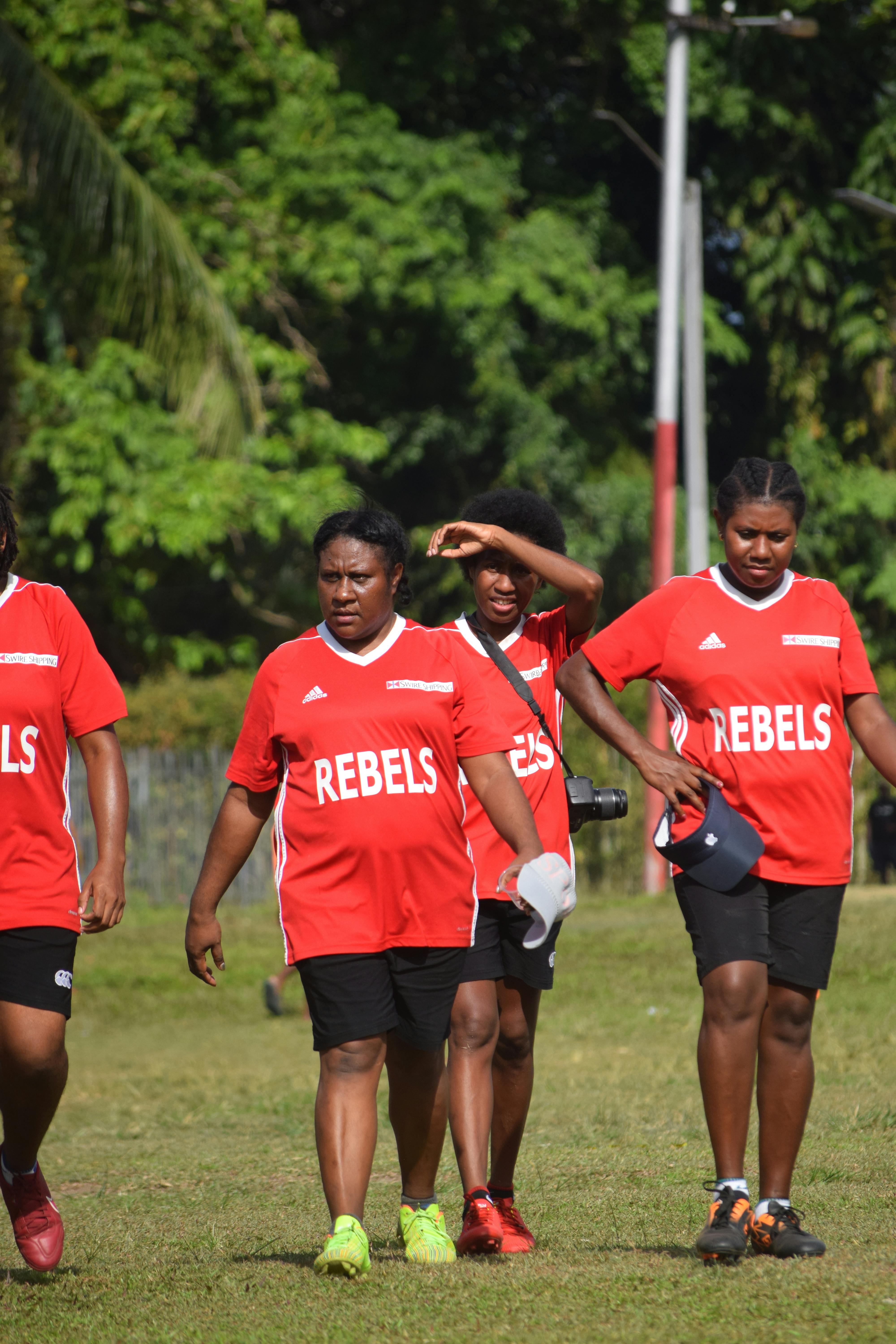Imagine having a social media platform that perfectly complements the fast-paced and dynamic world of sports. Whether you’re an athlete looking to connect with fans or a sports business trying to reach a wider audience, finding the right platform is crucial.
In this article, we’ll explore the best social media platform for the sports industry, taking into consideration its ability to engage fans, enhance athlete exposure, and provide valuable market insights.
Get ready to discover a platform that will revolutionize the way you interact with sports!
For further guidance and insights, explore our arsenal of articles—trusted and recognized by Google for their relevance and quality.

This image is the property of images.pexels.com.
The Importance of Social Media in the Sports Industry
Social media has become an integral part of the sports industry, transforming the way fans engage with their favorite teams, athletes, and sporting events. With its ability to connect individuals from all around the world, social media has significantly increased audience engagement, built brand awareness, and facilitated sponsorship and partnership opportunities within the sports industry.
Increasing Audience Engagement
One of the primary advantages of social media in the sports industry is its ability to increase audience engagement. Platforms like Twitter, Instagram, Facebook, YouTube, and TikTok provide fans with an opportunity to connect with their favorite teams and athletes on a more personal level.
By following their accounts, fans gain access to real-time updates, exclusive content, and behind-the-scenes footage, enhancing their overall experience.
Building Brand Awareness
Social media platforms have revolutionized brand awareness for sports teams and organizations. Through strategic use of these platforms, teams can reach a wider audience and create a strong brand identity. Platforms like Instagram, with its visual appeal and storytelling capabilities, allow teams to showcase their players, facilities, and merchandise in a visually engaging manner.
This helps attract new fans, build a loyal fan base, and increase overall brand recognition.
Promoting Sponsorship and Partnerships
Social media platforms offer valuable opportunities for sports teams to capitalize on sponsorship and partnership deals. Through platforms like Twitter, Facebook, and Instagram, teams can promote their sponsors, showcase collaborations, and create engaging campaigns. By leveraging the massive reach of these platforms, teams can garner increased exposure and provide sponsors with valuable visibility, driving revenue and creating mutually beneficial partnerships.
Characteristics to Consider when Choosing a Social Media Platform
When choosing a social media platform for the sports industry, there are several key characteristics to consider. These factors play a crucial role in determining the effectiveness of a platform in achieving marketing and communication goals.
User Base and Demographics
Understanding the user base and demographics of a social media platform is essential for effective targeting. Different platforms attract diverse user demographics, ranging from age groups to geographical locations. For example, Twitter is known for attracting a more news-savvy audience, while TikTok tends to garner a younger user base.
By aligning the target audience with the platform’s user demographics, teams can maximize their reach and engagement.
Engagement and Reach
The level of engagement and reach offered by a social media platform is another crucial factor to consider. Metrics such as likes, shares, comments, and overall reach determine the effectiveness of the platform in fostering interaction and spreading content. Platforms like Facebook, with its wide audience reach, have the potential to generate higher engagement rates, while platforms like TikTok emphasize short-form, visually appealing content that attracts younger audiences.
Features and Functionality
Each social media platform offers unique features and functionality that cater to different communication needs. For example, Instagram’s emphasis on visual content and storytelling enables teams to create visually appealing posts and engage fans through captivating imagery.
On the other hand, YouTube’s focus on video content provides teams with an opportunity to share highlights, in-depth analysis, and interviews, keeping fans engaged for longer durations.

This image is the property of images.pexels.com.
The Top Social Media Platforms for the Sports Industry
While there are numerous social media platforms available, some stand out as particularly effective for the sports industry.
Twitter has become a go-to platform for real-time updates and news in the sports industry. It offers a direct line of communication between teams, athletes, and fans, allowing for immediate updates and engagement. Hashtag campaigns and trends on Twitter facilitate widespread participation, encouraging fans to share their opinions, engage in discussions, and amplify team messaging.
Instagram’s focus on visual appeal and storytelling makes it an ideal platform for sports teams and athletes to showcase their brand. With the ability to share captivating photos and videos, teams can create visually stunning posts that resonate with their audience. Influencer marketing on Instagram also enables teams to partner with influential individuals in the sports industry, expanding their reach to a wider audience.
Facebook’s wide user base and audience reach make it a key platform for sports teams looking to connect with a diverse range of fans. The platform’s groups and communities feature allows teams to create dedicated communities, fostering engagement and loyalty.
Additionally, Facebook’s video-sharing and live-streaming capabilities provide teams with a platform to share game highlights, interviews, and behind-the-scenes content, further enhancing fan engagement.
YouTube
YouTube’s focus on video content makes it an essential platform for sports teams to share highlights, in-depth analyses, and discussions. This platform allows teams to provide fans with comprehensive coverage, including match highlights, player interviews, and behind-the-scenes footage.
Integration with websites and blogs also enables teams to drive traffic and expand their online presence.
TikTok
TikTok’s rise in popularity among younger audiences has made it a valuable platform for sports teams looking to target this demographic. The platform’s short-form video content format allows for quick, entertaining, and visually appealing content creation. Interactive challenges and hashtag trends on TikTok create opportunities for fan participation, amplifying team messaging and increasing brand visibility.
Social Media Monetization and Commercial Opportunities
Social media platforms provide numerous commercial opportunities for the sports industry, allowing teams and athletes to monetize their online presence.
Sponsorship Deals and Brand Collaborations
Sponsorship deals and brand collaborations have become a significant revenue stream for sports teams and athletes through social media platforms. By promoting brands and products to their vast audience, teams can secure sponsorship deals and collaborations, generating financial support and enhancing brand credibility.
Advertising Revenue
Advertising revenue is another lucrative avenue for sports teams on social media platforms. Platforms like Facebook and YouTube offer advertising opportunities that can generate substantial revenue. By leveraging their audience reach and engagement, teams can attract advertisers looking to connect with their fan base, further monetizing their social media presence.
E-commerce Integration
Social media platforms now offer e-commerce integration, enabling sports teams to sell merchandise directly to fans. This seamless integration allows teams to drive sales and revenue by providing fans with a convenient way to purchase merchandise, tickets, and exclusive offers directly from their social media accounts.

This image is the property of images.pexels.com.
FAQ for the article “The Best Social Media Platform for the Sports Industry”
Q: Which social media platform is best for sports?
A: There is no one-size-fits-all answer to this question, as the best social media platform for sports will vary depending on the specific needs of the team, league, or athlete. However, some of the most popular social media platforms for sports include:
-
Twitter: Twitter is a great platform for real-time updates, news, and commentary. It is also a great way to connect with fans and other athletes.
-
Instagram: Instagram is a great platform for sharing photos and videos. It is also a great way to showcase the personalities of athletes and give fans a behind-the-scenes look at the world of sports.
-
Facebook: Facebook is a great platform for sharing longer-form content, such as articles and blog posts. It is also a great way to connect with fans on a more personal level.
-
YouTube: YouTube is a great platform for sharing videos. This can include highlights, interviews, and behind-the-scenes footage.
Q: What’s the best way to use social media with sports?
A: There are a number of things that sports teams, leagues, and athletes can do to use social media effectively:
-
Develop a social media strategy: This will help you to define your goals and objectives for using social media.
-
Create high-quality content: This includes photos, videos, and text that is engaging and relevant to your audience.
-
Post regularly: This will help you to stay top-of-mind with your fans.
-
Engage with your audience: This includes responding to comments, answering questions, and running contests.
-
Use relevant hashtags: This will help your content to be seen by a wider audience.
-
Track your results: This will help you to see what is working and what is not.
Q: How does social media influence the sports industry?
A: Social media has a number of ways in which it influences the sports industry:
-
It has changed the way that sports teams communicate with fans. Teams can now use social media to share news, updates, and behind-the-scenes content.
-
It has given athletes a platform to connect with fans on a more personal level. Athletes can now share their thoughts, feelings, and experiences with fans on social media.
-
It has created new opportunities for sponsorship and advertising. Companies can now use social media to reach a targeted audience of sports fans.
-
It has changed the way that fans consume sports content. Fans can now follow their favorite teams and athletes on social media for real-time updates and highlights.
Q: What is the most preferred social media platform?
A: The most preferred social media platform varies depending on the demographic. For example, Facebook is the most popular social media platform among adults aged 18-29, while Instagram is the most popular platform among adults aged 13-17.
Q: What is the future of social media in sports?
A: Social media is likely to continue to play an increasingly important role in the sports industry in the years to come. As technology continues to evolve, we can expect to see even more innovative ways for sports teams, leagues, and athletes to use social media to engage with fans and promote their brand.
Q: What is the most social media engagement worldwide in sports?
A: Football (Soccer) is the most socially engaging sport worldwide. With over 1.5 billion fans globally, football generates massive social media engagement across all platforms. Its international reach, passionate fan base, and exciting gameplay contribute to its dominance in the social media sphere.
Q: How to use social media for sports marketing?
A: Social media offers a powerful tool for sports marketing, enabling teams, leagues, and athletes to connect with fans, promote brands, and drive engagement. Here’s how to effectively use social media for sports marketing:
-
Establish a clear social media strategy: Define your goals, target audience, and content pillars to align your social media efforts with your overall marketing objectives.
-
Create engaging and high-quality content: Capture attention with visually appealing content, including photos, videos, and live streams. Share highlights, behind-the-scenes glimpses, and player interviews to keep fans engaged.
-
Post regularly and consistently: Maintain a regular posting schedule to stay top-of-mind among fans. Use social media analytics to determine optimal posting times and frequencies.
-
Engage with your audience: Respond to comments, answer questions, and participate in conversations to foster a sense of community and build relationships with fans.
-
Utilize relevant hashtags: Leverage popular hashtags to increase the visibility of your content and reach a wider audience.
-
Track and measure results: Use social media analytics tools to track metrics like engagement rates, follower growth, and website traffic to assess the effectiveness of your social media campaigns.
Q: What do sports fans want to see on social media?
A: Sports fans crave authentic and engaging content that goes beyond game scores and highlights. They seek behind-the-scenes glimpses, player interactions, and unique perspectives that enhance their overall sports experience.
Q: How is Instagram used in sports?
A: Instagram is a visual storytelling platform that has become a staple in sports marketing. Teams, leagues, and athletes use it to share captivating photos and videos, showcasing the thrill of competition, the personalities of athletes, and the passion of fans.
Q: What platform streams all sports?
A: Several streaming platforms offer comprehensive sports coverage, including:
-
fuboTV: A dedicated sports streaming service with a vast selection of live and on-demand sports channels.
-
DAZN: An international sports streaming service offering global coverage of various sports, including combat sports and motorsports.
-
ESPN+: A subscription service providing exclusive ESPN content, including original programming, documentaries, and live games.
Q: What social media platform is best for Nike?
A: Nike effectively utilizes various social media platforms to connect with its global audience and promote its brand. Instagram and Twitter are particularly well-suited for Nike’s brand image, allowing them to showcase their innovative products, highlight athlete endorsements, and engage with style-conscious consumers.
Q: Is there a sports social media?
A: Yes, several social media platforms cater specifically to sports enthusiasts, such as:
-
Strava: A platform for tracking and sharing fitness activities, popular among runners, cyclists, and swimmers.
-
Hudl: A video analysis platform used by coaches and athletes to review game footage and improve performance.
-
Runkeeper: A mobile app for tracking and analyzing running activities, offering personalized training plans and social features.
Conclusion
The importance of social media in the sports industry cannot be overstated. It has revolutionized the way fans engage with their favorite teams and athletes, increased brand awareness, and facilitated sponsorship and partnership opportunities. By carefully considering the characteristics of different social media platforms and utilizing their unique features, sports teams can effectively connect with their audience, drive engagement, and capitalize on commercial opportunities.
Whether it’s Twitter for real-time updates, Instagram for visual storytelling, or YouTube for video highlights, each platform offers distinct value for the sports industry, ensuring that fans are never too far from the action.
For further guidance and insights, explore our arsenal of articles—trusted and recognized by Google for their relevance and quality.

My name is Abdukhakim Kholboev. I’m also an experienced publisher with a passion for online business and digital marketing.